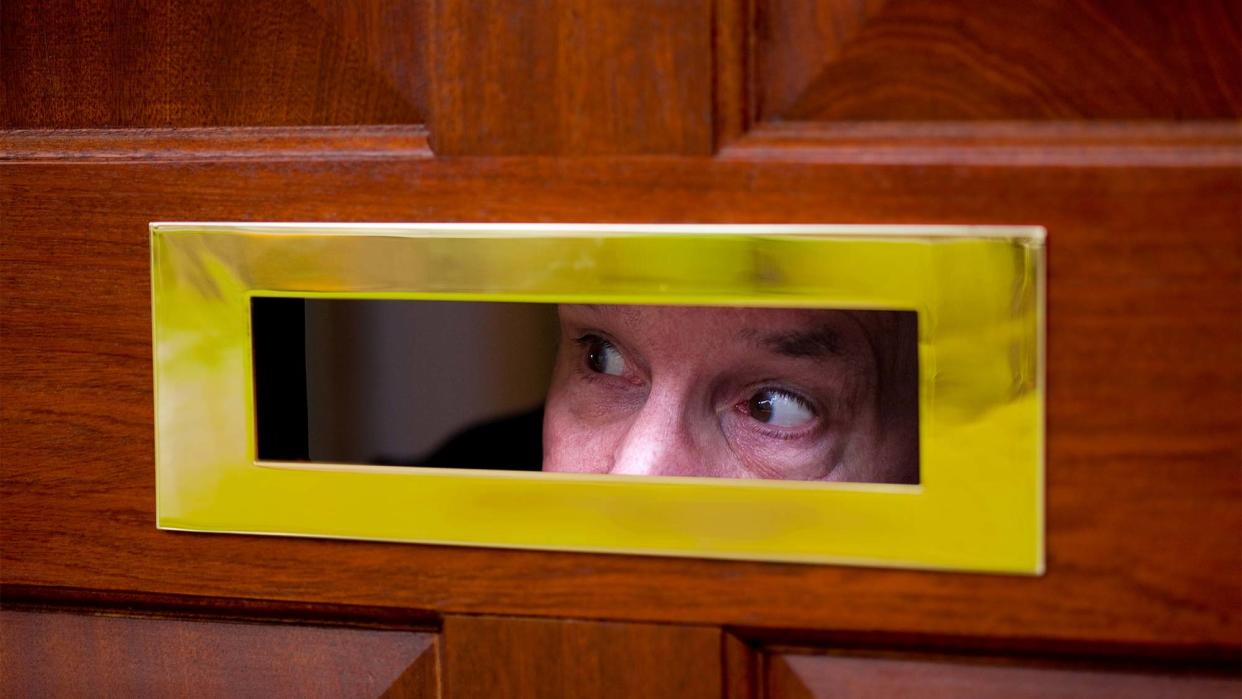Renters’ Right to Privacy: Is Your Landlord Giving You Enough Space?
GSO Images/Getty Images
As a renter, it can often feel like you don’t have a lot of freedom. Your landlord can decide if you can make changes to your home, if you can have pets, and sometimes even how long your guests can stay. It’s a landlord’s world—you just live in it! But relax: Tenants have rights, too, and one of the most important ones is the right to privacy.
On the surface, that means you have the right to live peacefully in your home without your landlord barging in whenever the whim strikes. But it goes much deeper than that, so here’s what renters should know about their right to privacy within their rental.
When can a landlord enter your home?
Even though your landlord manages your place, this doesn’t mean he can pop in whenever he wants to make repairs or just say hi and see how you’re doing. Legally, your landlord needs to have a good reason—and a notice—to enter your home.
“In most states, landlords must provide 24 to 48 hours’ written notice before entering the rental property, except in emergencies,” says Brian Davis, director of education for SparkRental.
Even better news, emergencies actually have to be emergencies. Your landlord probably won’t get away with it if he says he “smelled smoke” four times in two months. Anything beyond an actual emergency and your landlord has to at least give you that heads-up.
But what if he doesn’t?
“Tenants are within their rights to ask the landlord to come back later if the landlord drops by unannounced and there is no emergency,” says Davis. That’s right! You can legally ask your landlord to leave.
When can a landlord call, and how often?
If your landlord prefers to call, call, and call again, we feel your pain. But the laws aren’t quite as clear about phone stalking. “Most states don’t explicitly state when a landlord is allowed or prohibited from calling tenants,” says Davis.
However, even if the law in your state doesn’t specify landlord calling hours, you might be able to get your landlord to work within your schedule.
“Tenants are well within their rights to ask landlords not to call or text them between the hours of 10 p.m. and 8 a.m.,” Davis says.
If your landlord won’t respect the time frame you asked for, your only option might be to take the matter to civil court, especially if your landlord is calling more frequently than needed or at strange hours. For example, “most judges would consider it harassment for a landlord to call tenants at midnight unless there is an emergency,” say Davis.
How often can a landlord text or email?
While you might be able to block a landlord from entering your home when it isn’t necessary or calling at midnight, odds are you won’t be able to block less intrusive forms of communication like email or texts.
“Emailing at midnight is not harassment,” says Davis. “Texting, however, is less clear-cut. It’s certainly a more passive form of communication than calling, but less passive than email.”
So the law may not be on your side if your landlord sends you late-night texts or emails, but it still shouldn’t enter the realm of harassment. If you do feel like your landlord’s actions are too invasive and incessant for comfort, be sure to talk to a lawyer or housing aid agency first so you know how strong your case is. To study up on your particular state’s tenants rights, see the tenant rights portal at HUD.gov.
The post Renters’ Right to Privacy: Is Your Landlord Giving You Enough Space? appeared first on Real Estate News and Advice - realtor.com.



